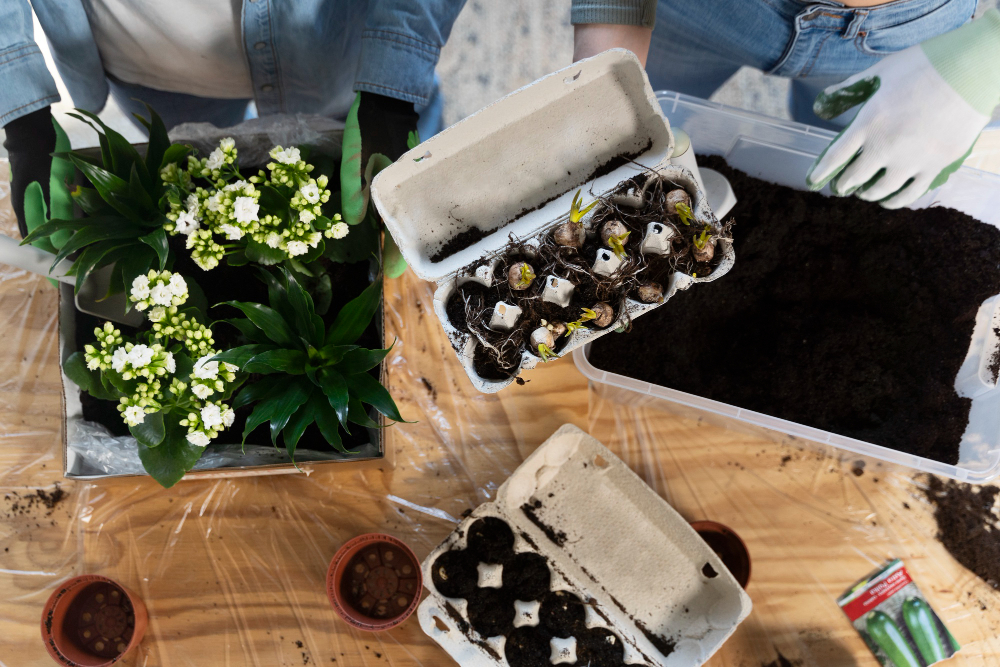Upcycling has gained popularity in recent years as a sustainable practice that helps reduce waste and minimize environmental impact. By creatively repurposing discarded materials and giving them new life, upcycling offers numerous environmental benefits and plays a crucial role in promoting a more sustainable lifestyle. In this article, we’ll delve into the environmental significance of upcycling and explore how it contributes to a healthier planet.
Reducing Waste and Landfill Burden
One of the primary environmental benefits of upcycling is its ability to reduce waste and alleviate the burden on landfills. By transforming items that would otherwise end up in trash bins into new products or materials, upcycling extends the lifespan of these materials and prevents them from being discarded prematurely. This reduction in waste helps conserve valuable landfill space and minimizes the environmental impact associated with waste disposal.
Conserving Natural Resources
Upcycling promotes resource conservation by reducing the demand for new raw materials. Instead of relying solely on virgin resources extracted from the earth, upcycling utilizes existing materials and repurposes them in innovative ways. By conserving natural resources such as timber, water, and minerals, upcycling helps preserve ecosystems, protect biodiversity, and mitigate the environmental damage caused by resource extraction and processing.
Energy Savings and Emissions Reduction
Another environmental benefit of upcycling is its potential to save energy and reduce greenhouse gas emissions. Manufacturing new products from recycled or upcycled materials typically requires less energy than producing goods from raw materials. By choosing upcycled products over newly manufactured ones, consumers can indirectly contribute to energy conservation and lower carbon emissions associated with industrial production processes.
Promoting Circular Economy Principles
Upcycling aligns with the principles of the circular economy, which aims to minimize waste and maximize resource efficiency. Unlike the traditional linear economy, where products are disposed of after use, the circular economy emphasizes the reuse, repair, and repurposing of materials to create a closed-loop system. Through upcycling, materials are continuously cycled back into the production process, reducing the need for new resources and promoting sustainable consumption patterns.
Fostering Creativity and Innovation
Upcycling encourages creativity and innovation by challenging individuals to think outside the box and find new uses for old items. By reimagining the potential of discarded materials, upcyclers transform everyday objects into unique and functional creations, showcasing the beauty of sustainable design. This creative process not only reduces waste but also inspires others to adopt more eco-friendly practices and embrace the concept of mindful consumption.
Raising Awareness and Inspiring Action
Upcycling serves as a powerful tool for raising awareness about environmental issues and inspiring positive change. Through upcycling projects, workshops, and community initiatives, individuals and organizations can educate others about the importance of waste reduction, resource conservation, and sustainable living practices. By sharing success stories and showcasing the environmental benefits of upcycling, advocates can motivate others to adopt similar practices and make a meaningful difference in their communities.
Empowering Individuals and Communities
Upcycling empowers individuals and communities to take action and participate in the transition towards a more sustainable future. By providing opportunities for DIY projects, upcycling workshops, and collaborative initiatives, upcycling fosters a sense of ownership and responsibility for environmental stewardship. By engaging in upcycling activities, individuals can actively contribute to positive environmental outcomes and feel empowered to create positive change in their own lives and communities.
In conclusion, upcycling offers numerous environmental benefits and plays a vital role in promoting sustainability and waste reduction. By reducing waste, conserving resources, saving energy, promoting circular economy principles, fostering creativity, raising awareness, and empowering individuals and communities, upcycling contributes to a healthier planet and a brighter future for generations to come.
